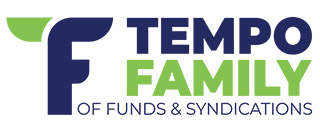In the December Issue
- Four End-of-Year Financial Strategies for Every Investor
- Three Investment Strategies to Reduce Your Tax Liability in 2019
- How to Maximize Your Donations This Holiday Season
End of Year Financial Planning: A Look at Your 2018 Investment Portfolio
We want to wish everyone a Happy Holidays this season from everyone here at TF Management Group LLC. This month is the season of giving and lots of people begin making their end of year contributions to charities, religious organizations, and more. It’s also the time when investors begin reviewing their investments from the course of the year and analyzing their returns.
In this month’s newsletter, we will walk through various end-of-year financial strategies to help guide you as you begin looking over your own portfolio including alternative ways to donate to charities. With the new year only a month away, we’ll also recommend a few investment strategies to consider into 2019.
*Disclaimer: TF Management Group LLC is not a tax firm nor tax advisor. Please consult your tax professional before taking any action on the items we discuss below.
Four End-of-Year Financial Strategies for Every Investor
Portfolio Rebalancing
At the end of the year, both professional and non-professional investors should look at his or her assets (including stocks, bonds, real estate, and alternative investments) and consider which investments are out of balance and did not yield expected returns, regardless if they rebalance quarterly. This end-of-year strategy is meant to identify which of your investments are ‘winners’ and which are ‘losers.’
If you sold a few successful investments in 2018, you now owe capital gain taxes and may want to consider selling some underperforming assets to reduce this tax liability. The concept of reducing tax liabilities is a key component to year-end portfolio analysis.
Adjust your Investments to Reduce Volatility
It’s no surprise to any investor that there has been an uptick in stock market volatility in 2018, which means now is the time to consider a new, alternative investment strategy for 2019. Remember, diversification is the quintessential tool for a successful portfolio.
With interest rates rising for the foreseeable future, adjusting your portfolio for rising interest rates is important. (Learn more about the effect of rising interest rates on real estate investing.).
*Investor Tip: Utility stocks respond poorly to rising interest rates. Consider refinancing and diversifying your investments in the alternative investment sector to reduce your risk.
Make an End-of-Year Contribution to Your Roth IRA
The end of the year is a great time to make a large contribution to your traditional or Roth IRA or 401K within the limits per the IRS rules.
*Investor Tip: You can direct your employer to contribute a large chunk of your last yearly paycheck to your Roth 401K or just traditional 401K. Let me explain this a bit further….
IRS allows up to $18,500 in 2018 of contributions to Traditional or Roth 401K plan. For example, you contributed only $10,000 year to date, so you can make a large contribution from your last 1-2 pay-checks to max-out contributes, basically, contribute remaining $8,500. Obviously, be aware of your personal expenses and if you are able to allocate that much to your IRA account.
Contributions to traditional 401Ks are generally tax deductible, and contributions to Roth 401Ks are not tax deductible, but earnings grow tax free. Same concept is true for Traditional and Roth IRAs. You might have contributed some money earlier in the year (or not).
IRS Roth IRA contributions are allowed for singles making under $135,000 (with some reduction over $120,000), and similarly married people making under $199,000 (with some reduction over $189,000). Max contribution to Roth or Traditional IRA is $5,500 if you are under 50 years of age, and $6,500 if you are at least 50 years old.
Buy Real Estate
Some real estate investments allow bonus depreciations at the end of the year. Depending on the type of asset, you could close on a transaction late in the year and reduce your tax liability.
Please be sure to consult your CPA. This is a very technical issue. Also, rather than solely making the decision for tax reduction purposes, make sure it’s a solid investment. The key point is this: if you are already working on purchasing a real estate property with the option to close in December, you may want to close in December. Your CPA should be able to guide you through the tax benefits and help your decision.
Once you’ve wrapped up your portfolio analysis for 2018, it’s time to start thinking about investment strategies for 2019. With increasing stock market volatility and rising interest rates, diversification into the alternative investment sector will reduce your overall risk while yielding strong returns.
The next few investment strategies we will discuss involve alternative investment vehicles and unique opportunities to explore in 2019.

Three Investment Strategies to Reduce Your Tax Liability in 2019
Structured Sale for Real Estate Assets
There is an upward trend of real estate investors putting more and more money in self-storage facilities because of a phenomenon known as structured sale or structured purchase.
The unique aspect of self storage facilities is that they act as both a business and a real estate property. Real estate properties alone have higher taxes, so the cost-effective option would be to break up the transaction into a real estate portion and business portion. In doing so, you can avoid the high real estate taxes and ultimately, reduce your tax liability.
For example, if you buy a self-storage facility for $2,000,0000, you can determine the real estate portion is worth $1,200,0000 while the business portion is worth $800,000. When the assessor evaluates the transaction and sees the real estate portion is worth $1.2M, they will raise your taxes less than if it was worth the entire $2M.
Added Benefit: Cost Segregation
While a structured sale reduces your tax liabilities on the real estate end of the deal, there is an additional benefit to the business acquisition side.
With any business, there are assets that can be depreciated much faster than real estate like air conditioning units, furniture, etc, so depending on the size of your business, you may want to perform cost segregation to determine what portion of the transaction can be depreciated faster.
This tool is crucial for big commercial projects because the benefit of cost segregation outweighs the cost of hiring someone to determine the depreciation schedule for the assets. On the other hand, it may not be worth the cost for a small project.
Overall, a structured sale combined with cost segregation results in reduced tax liabilities, increased depreciation, and lower taxes for many years.
Tax Efficient Investing
Why is it important to invest with tax efficiency?
If you’re a high-income earner, you’re already subject to high tax rates, so more than likely, you may want to invest your money with tax efficiency in mind to maximize your returns.
*Tax efficiency is simply a measure of your return after taxes are paid.. In other words, it reduces the actual net earning income as far as the tax code is concerned.
There is balance, however, between tax efficiency and investing for high ROI. There are some projects that are tax efficient, but they don’t make economic sense from a ROI standpoint. Would you rather invest in a project with 5% returns with tax efficiency or one that is not tax efficient, but generates 10% returns? It’s important to conduct due diligence before making any investment decision. Know what is right for your money and income bracket.
Qualified Money vs. Non-Qualified Money
When deciding how to invest your money in tax efficient assets, it’s important to differentiate between two types of money: qualified and non-qualified.
Qualified money, typically identified as IRA or 401K money, is generally tax shielded or tax deferred until distributions.
Non-qualified money is the money in your bank. You generate income with this money and pay taxes on that income.
Non-qualified money is the type of money you want to invest in NON-income producing, tax-efficient assets. For example, non-qualified money is good for capital investments like development or re-development projects, producing no income, but promising long-term capital gains on completion. On the other hand, you could invest in a bond or promissory note with IRA money because you won’t pay taxes on the earned interest. Similarly, you could invest in tax-efficient funds with non-qualified money and put your qualified money into funds that generate high current income.
Opportunity Zones
The third strategy to consider for 2019 is investing more money in recognized ‘Opportunity Zones.’
Some investors are selling their appreciated assets and moving their money to these opportunity zones because the return in these markets is looking exceedingly good.
An example of an Opportunity Zone is a fund. Funds provide a lot of benefits to investors such as depreciation and accelerated depreciation while reaping passive returns without the leg work.
*Investor Tip: Look for trusted funds that are focused on risk-adjusted ROI and diversification.
Always conduct due diligence before moving your money to an Opportunity Zone.
In concept, Opportunity Zones are created to help struggling areas. The investments in struggling areas might produce slower than average returns in a given city or area. It also might outperform better areas because of great tax benefits. There is a degree of risk and uncertainty with Opportunity Zone investing. It is critical to find the right projects and fund(s) before jumping into the Opportunity Zone space.

Wrap Up: Season of Giving
As 2018 comes to a close, it’s important to look over your investments from throughout the year and consider what kind of returns they yielded, identify those that have appreciated and are ready to be sold, or alternative investments to add to your existing portfolio.
Even more importantly, however, is to consider how you want to make your year-end contribution to charities, religious organizations, etc. Did you know there are a few different ways to donate to charities rather than simply donating cash from your bank account?
If you have appreciated assets, you have the option of donating these to charities and avoid paying capital gains taxes on the assets. For example, you bought a property ten years ago for $100,000 and today it is worth $500,000. If you sell the property, you are required to pay capital gain taxes on the asset. But if you donate the property, you no longer owe appreciation taxes, can write- off the entire amount as a deduction, and the charity benefits greatly.
*This is subject to individual tax circumstances. Deductibility might depend on individual AGI. Consult your tax professional before making any decision.
Another way of giving is by donating appreciated stocks.
Maybe you own Google shares that are now worth $10,000. You can donate the stocks to charity, avoid paying capital gain taxes, and take a deduction for the current value of the shares.
There are limitless options when it comes to giving at the end of the year. If you have any questions about donations or end-of-year portfolio analysis, feel free to contact us and we would be happy to walk through options with you.
Thanks for reading!

Mike Zlotnik
CEO, TF Management Group LLC
This newsletter and its contents are not an attempt to sell securities, nor to sell anything at all, nor provide legal, nor tax accounting, nor any other advice. The presenter is a private lending and real estate fund management business, and the information represented herein are purely for educational purposes and represents the opinions of the presented. Prior to making any investment or legal decision you should seek professional opinions from a licensed attorney, and a financial advisor.
TF Management Group LLC (TFMG) is an investment fund management company that specializes in both short-term debt financing for real estate “fix and flip” projects, and long-term “value-add” equity deals.

